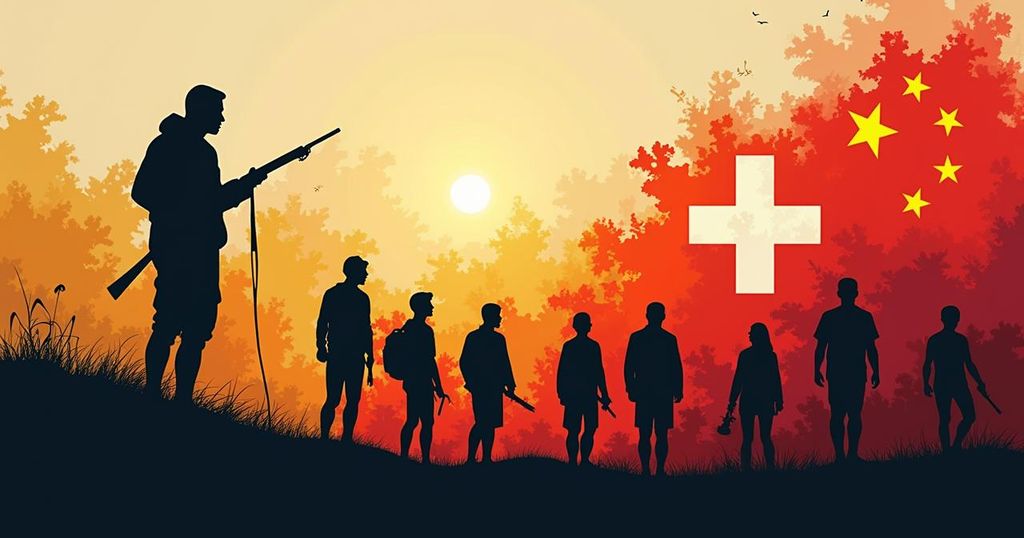Switzerland Endorses China-Brazil Peace Initiative for Ukraine Conflict
Switzerland has expressed support for a Chinese-Brazilian peace plan for Ukraine, marking a significant shift in its diplomatic stance. The country participated as an observer in a recent meeting on the sidelines of the U.N. General Assembly, emphasizing its alignment with the principles of the U.N. Charter in peace efforts. This development underscores Switzerland’s commitment to exploring diverse diplomatic avenues while maintaining its traditional stance of neutrality.
Switzerland has officially expressed support for a peace initiative led by China and Brazil aimed at resolving the ongoing conflict in Ukraine, as declared by its Foreign Affairs Ministry on Saturday. This endorsement marks a notable shift in Switzerland’s stance regarding peace efforts, particularly in the context of the protracted war, which is now in its third year. The conflict remains deeply entrenched, with Ukrainian President Volodymyr Zelenskiy advocating for a comprehensive victory plan, while Russian President Vladimir Putin insists that any negotiations should be contingent upon Ukraine forgoing substantial territorial claims and abandoning its NATO aspirations. Switzerland, traditionally recognized as a neutral mediator, attended a meeting on Friday involving 17 nations, convened alongside the U.N. General Assembly and led by China’s Foreign Minister, Wang Yi, and Brazilian Foreign Policy Adviser, Celso Amorim. Nicolas Bideau, the chief spokesperson for the Foreign Affairs Ministry, stated, “We took part in this meeting as an observer and we support this dynamic.” This support is further solidified by Switzerland’s evolving perspective on the peace plan initially presented in May, which has been positively influenced by the recent addition of a reference to the U.N. Charter—signifying a commitment to peace upheld by member nations. He emphasized, “For us, this translates into a significant change in our view of these initiatives. … A concrete diplomatic effort organised by the Sino-Brazilian group could be of interest to us.” Previously, Switzerland hosted a peace summit in Buergenstock that excluded Russia, an event criticized by some as a sign of Western bias attempting to isolate Moscow. In light of this, Swiss diplomats are actively exploring locations for a subsequent summit, particularly focusing on engaging with countries from the global South.
The ongoing conflict between Ukraine and Russia, which escalated following Russia’s invasion, has led to varying approaches to conflict resolution. The international community remains divided, with Ukraine seeking to restore its territorial integrity and Russia defending its territorial claims. Switzerland, known for its diplomatic neutrality and hosting peace negotiations, is navigating its response to the ongoing war, considering new initiatives as viable pathways towards peace. The involvement of China and Brazil represents an attempt to diversify diplomatic efforts away from Western-centric frameworks in pursuit of lasting solutions to the conflict.
In conclusion, Switzerland’s endorsement of the Sino-Brazilian peace initiative reflects a substantial shift in its diplomatic posture concerning the Ukraine conflict. With the modification of the peace plan referencing the U.N. Charter, Switzerland is signaling openness to alternative frameworks for negotiation while remaining committed to its tradition of neutrality and mediation. The dynamics of global diplomacy are continuously evolving, and the involvement of diverse nations could potentially influence the peace process positively.
Original Source: www.usnews.com








Post Comment